Here are my favorite poems about retirement categorized:
- Short retirement poems
- Beautiful retirement poems
- Retirement poems for colleagues
- Retirement poems that rhyme
So if you want the best poems about retirement, then you’re in the right place.
Let’s jump right in!
- 113 Engulfing Poems About Growth
- 143 Stupefying Famous Poems About Life
- 65 Carefree Poems About Innocence
- 77 Heartwarming Poems About Growing Up
- 83 Courageous Poems About Change
- 21 Memorable Poems About New Beginnings
- 163 Meaningful Poems About Life

Fulfilling Poems About Retirement
Immerse yourself in a collection of the most insightful poems about retirement, meticulously compiled for your reading experience.
Whether you’re seeking works that delve into the joys of newfound freedom and leisure, or ponder on the transition from work life to the golden years, our anthology provides a diverse range of evocative examples.
With our carefully curated selection, the best poems about retirement are all conveniently located in one place.
So, take a moment to explore and appreciate the beauty and wisdom of these verses that have inspired poets across generations!
Let’s set sail on this poetic voyage into retirement!
My #1 Favorite Poem About Retirement
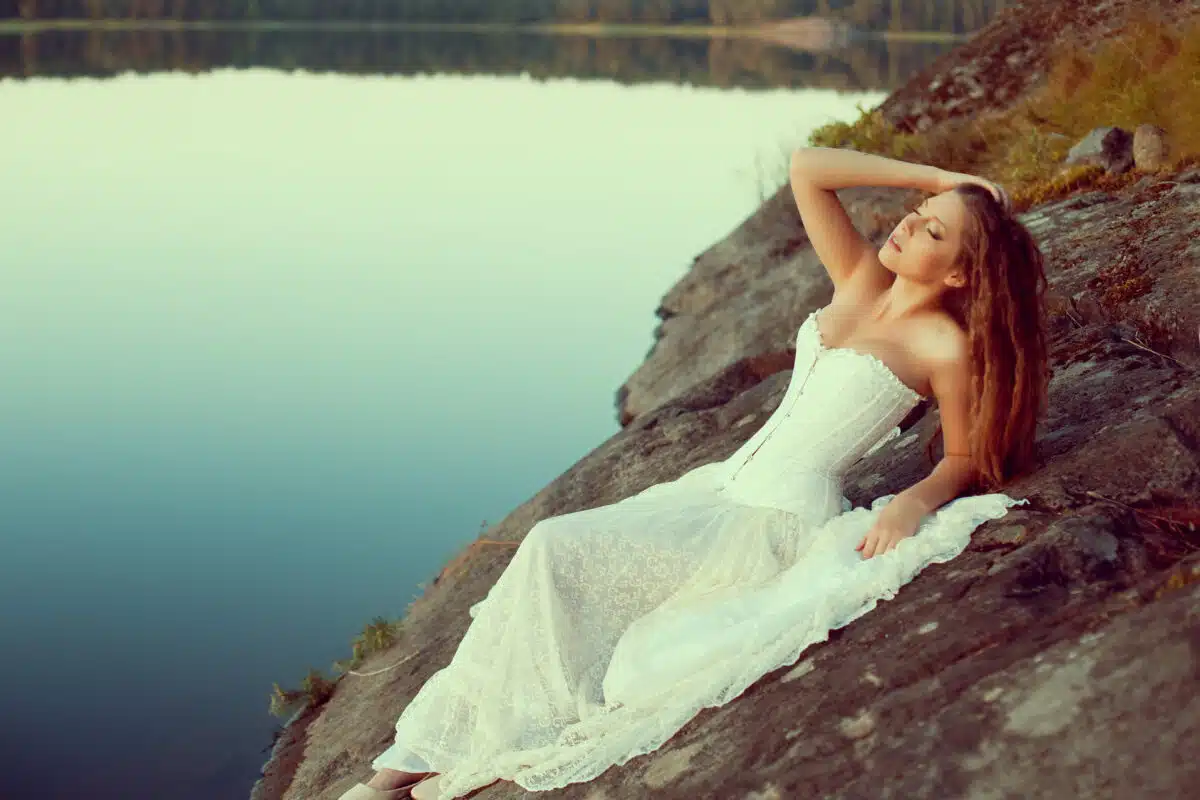
“The Lake Isle Of Innisfree” by William Butler Yeats
I will arise and go now, and go to Innisfree,
And a small cabin build there, of clay and wattles made;
Nine bean rows will I have there, a hive for the honey bee,
And live alone in the bee-loud glade.
And I shall have some peace there, for peace comes dropping slow,
Dropping from the veils of the morning to where the cricket sings;
There midnight’s all a glimmer, and noon a purple glow,
And evening full of the linnet’s wings.
I will arise and go now, for always night and day
I hear lake water lapping with low sounds by the shore;
While I stand on the roadway, or on the pavements gray,
I hear it in the deep heart’s core.
Short Retirement Poems

“Retirement” by Anne Brontë
O, let me be alone a while,
No human form is nigh.
And may I sing and muse aloud,
No mortal ear is by.
Away! ye dreams of earthly bliss,
Ye earthly cares begone:
Depart! ye restless wandering thoughts,
And let me be alone!
One hour, my spirit, stretch thy wings,
And quit this joyless sod,
Bask in the sunshine of the sky,
And be alone with God!
“Retirement” by William Wordsworth
If the whole weight of what we think and feel,
Save only far as thought and feeling blend
With action, were as nothing, patriot Friend!
From thy remonstrance would be no appeal;
But to promote and fortify the weal
Of our own Being is her paramount end;
A truth which they alone shall comprehend
Who shun the mischief which they cannot heal.
Peace in these feverish times is sovereign bliss:
Here, with no thirst but what the stream can slake,
And startled only by the rustling brake,
Cool air I breathe; while the unincumbered Mind
By some weak aims at services assigned
To gentle Natures, thanks not Heaven amiss.
“The Author Longs For Rural Retirement” by Joseph William Jenks
Ah, when, alas! shall he whose rural strains
Teach how t’ inhabit and adorn the plains,
Enjoy those scenes where most he would delight?
O! fields beloved, when will ye bless my sight?
When may I now my peaceful slumbers take;
Now with choice books amuse me as I wake;
Now deck with simple grace my rustic bowers,
And idly pass away the listless hours;
Drink sweet oblivion of life’s careful lot,
Unknown to man, and man by me forgot?

“The Gardens Of Epicurus” by Joseph William Jenks
Hail, sweet retirement! Wisdom’s peaceful seat!
Where, lifted from the crowd, and calmly placed
Beyond the deafening roar of human strife,
The Athenian sage his happy followers taught,
That pleasure sprang from virtue. Gracious Heaven!
How worthy thy divine beneficence,
This fair established truth! Ye blissful bowers,
Ye vocal groves, whose echoes caught his lore,
O might I hear, through time’s long tract conveyed ,
The moral lessons taught beneath your shades!
And, lo! transported to the sacred scenes,
Such the divine enchantment of the muse,
I see the sage I hear, I hear his voice.
“Some days retired from the rest” by Emily Dickinson
XL.
Some days retired from the rest
In soft distinction lie,
The Day that a companion came
Or was obliged to die.
“Advantages of Retirement” by Frances Maria Cowper
How sweet in silent thought to trace
The riches of redeeming grace!
To reckon mercies o’er and o’er,
And find them such an endless store!
Jesus everlasting theme!
Constant source of bliss supreme!
On thy fulness let me live,
From thy finish’d work receive
Humble faith and holy fear,
Courage, joy, and love sincere;
From the chain of Sin set free,
Bound alone, O Christ, to Thee.

“Success” by Unknown
I’d rather be a Could Be
If I could not be an Are;
For a Could Be is a May Be,
With a chance of touching par.
I’d rather be a Has Been
Than a Might Have Been, by far;
For a Might Have Been has never been,
But a Has was once an Are.
“Success” by Emma Lazarus
Oft have I brooded on defeat and pain,
The pathos of the stupid, stumbling throng.
These I ignore to-day and only long
To pour my soul forth in one trumpet strain,
One clear, grief-shattering, triumphant song,
For all the victories of man’s high endeavor,
Palm-bearing, laureled deeds that live forever,
The splendor clothing him whose will is strong.
Hast thou beheld the deep, glad eyes of one
Who has persisted and achieved? Rejoice!
On naught diviner shines the all-seeing sun.
Salute him with free heart and choral voice,
‘Midst flippant, feeble crowds of spectres wan,
The bold, significant, successful man.
“Leisure” by Amy Lowell
Leisure, thou goddess of a bygone age,
When hours were long and days sufficed to hold
Wide-eyed delights and pleasures uncontrolled
By shortening moments, when no gaunt presage
Of undone duties, modern heritage,
Haunted our happy minds; must thou withhold
Thy presence from this over-busy world,
And bearing silence with thee disengage
Our twined fortunes? Deeps of unhewn woods
Alone can cherish thee, alone possess
Thy quiet, teeming vigor. This our crime:
Not to have worshipped, marred by alien moods
That sole condition of all loveliness,
The dreaming lapse of slow, unmeasured time.
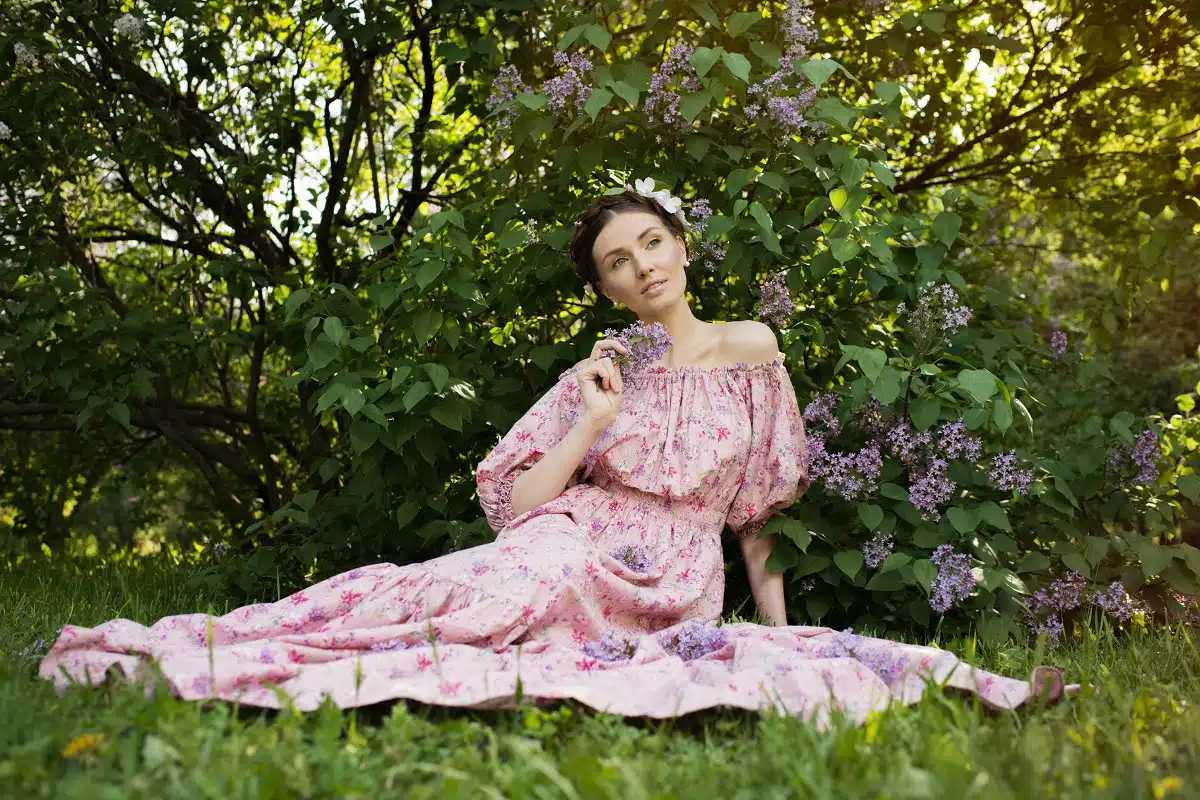
“Virtue in Rural Retirement; The Good Man’s Death” by Joseph William Jenks
O blest retirement, friend to life’s decline,
Retreats from care that never must be mine,
How blest is he who crowns in shades like these
A youth of labor with an age of ease;
Who quits a world where strong temptations try,
And, since ‘t is hard to combat, learns to fly!
For him no wretches, born to work and weep,
Explore the mine, or tempt the dangerous deep;
No surly porter stands in guilty state,
To spurn imploring famine from the gate;
But on he moves to meet his latter end,
Angels around befriending virtue’s friend;
Sinks to the grave with unperceived decay,
While resignation gently slopes the way;
And, all his prospects brightening to the last,
His heaven commences ere the world be past!
“Ramble Of Lovers At Eve—Amanda” by Joseph William Jenks
Now from the world,
Sacred to sweet retirement, lovers steal,
And pour their souls in transport, which the Sire
Of love approving hears, and calls it good.
Which way, Amanda, shall we bend our course?
The choice perplexes. Wherefore should we choose?
All is the same with thee. Say, shall we wind
Along the streams? or walk the smiling mead?
Or court the forest-glades? or wander wild
Among the waving harvests? or ascend,
While radiant Summer opens all its pride,
Thy hill, delightful Shene?
“Retirement—Self-Improvement—Self-Content” by Joseph William Jenks
Ah! who, when such life’s momentary dream ,
Would mix in hireling senates, strenuous there
To crush the venal Hydra, whose fell crests
Rise with recruited venom from the wound!
Who, for so great a conflict, would forego
Thy sylvan haunts, celestial Solitude!
Where self-improvement, crowned with self-content,
Await to bless thy votary.
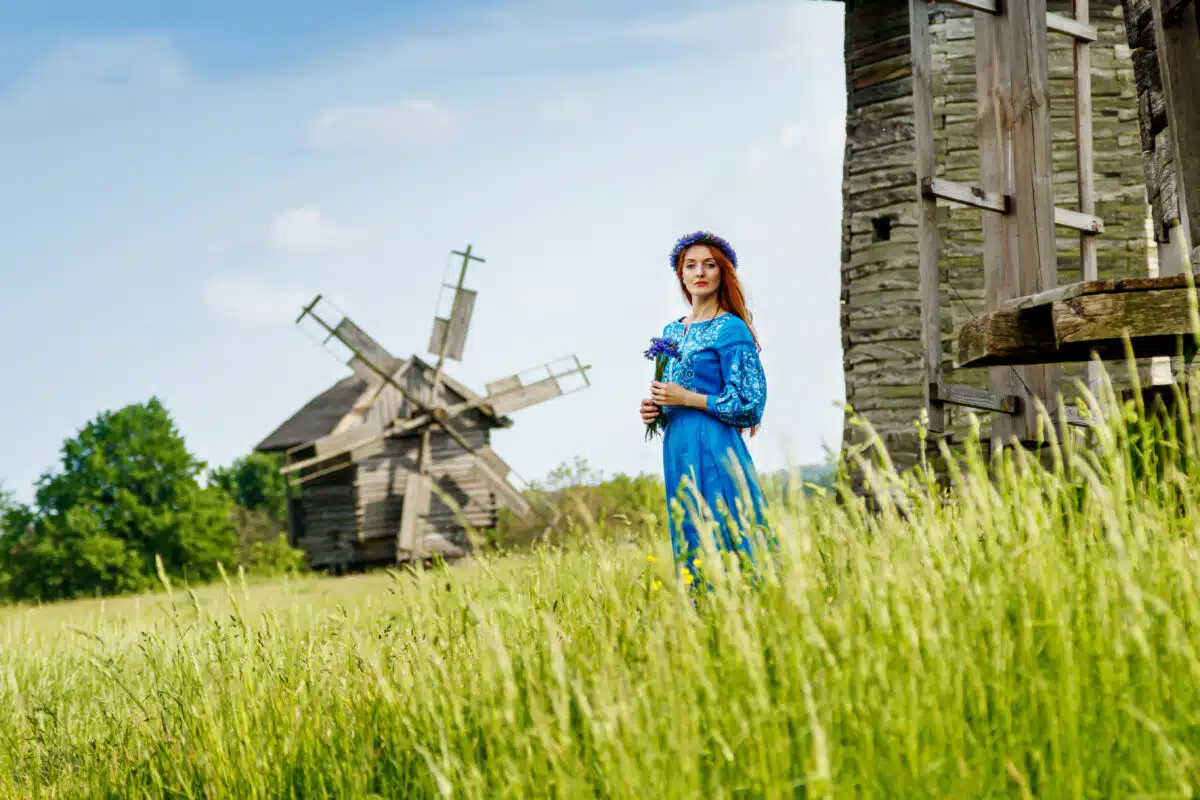
“Rural Retirement A Common Craving” by Joseph William Jenks
Hackneyed in business, wearied at that oar,
Which thousands, once fast chained to, quit no more,
But which, when life at ebb runs weak and low,
All wish, or seem to wish, they could forego;
The statesman, lawyer, merchant, man of trade,
Pants for the refuge of some rural shade,
Where, all his long anxieties forgot
Amid the charms of a sequestered spot.
Or recollected only to gild o’er,
And add a smile to what was sweet before,
He may possess the joys he thinks he sees,
Lay his old age upon the lap of ease,
Improve the remnant of his wasted span,
And, having lived a trifler, die a man.
“The Poet Seeks Retirement; Nature’s Pictures For Him” by Joseph William Jenks
With eager step, and carelessly arrayed,
For such a cause the poet seeks the shade.
From all he sees he catches new delight,
Pleased fancy claps her pinions at the sight;
The rising or the setting orb of day,
The clouds that flit, or slowly float away,
Nature in all the various shapes she wears,
Frowning in storms, or breathing gentle airs;
The snowy robe her wintry state assumes,
Her summer heats, her fruits, and her perfumes;
All , all alike transport the glowing bard,
Success in rhyme his glory and reward.
Beautiful Retirement Poems
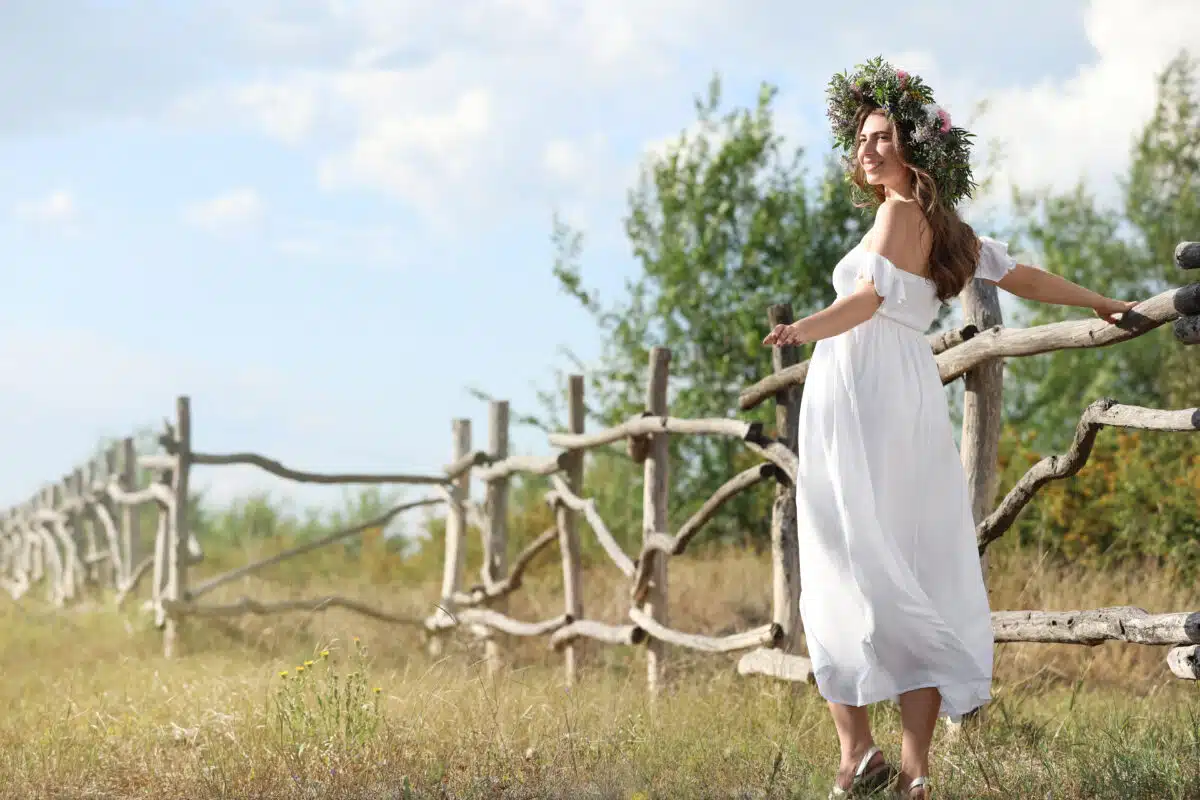
“Retirement” by Henry Vaughan
Fresh fields and woods! the earth’s fair face!
God’s footstool! and man’s dwelling-place!
I ask not why the first believer
Did love to be a country liver,
Who to secure pious content
Did pitch by groves and wells his tent,
Where he might view the boundless skie,
And all these glorious lights on high,
With flying meteors, mists and showers,
Subjected hills, trees, meads, and flowers,
And every minute bless the King
And wise Creator of each thing.
I ask not why he did remove
To happy Mamre’s holy grove,
Leaving the cities of the plain
To Lot and his successless train.
All various lusts in cities still
Are found: they are the thrones of ill;
The dismal sinks where blood is spilled,
Cages with much uncleanness filled.
But rural shades are the sweet sense
Of piety and innocence:
They are the meek’s calm region, where
Angels descend and rule the sphære;
Where heaven lies leaguer, and the Dove
Duely as dew comes from above.
If Eden be on earth at all,
’Tis that which we the country call.
“On Retirement” by Philip Freneau (pseud. Hezekiah Salem)
“A hermit’s house beside a stream,
With forests planted round,
Whatever it to you may seem,
More real happiness I deem
Than if I were a monarch crowned.
“A cottage I could call my own,
Remote from domes of care;
A little garden, walled with stone,
The wall with ivy overgrown,
A limpid fountain near,
“Would more substantial joys afford,
More real bliss impart,
Than all the wealth that misers hoard,
Than vanquished worlds, or worlds restored,—
Mere cankers of the heart!
“Vain foolish man! how vast thy pride,
How little can thy wants supply! —
‘T is surely wrong to grasp so wide
To act as if we only had
To triumph—not to die!”
From “Resignation” by Matthew Arnold
The world in which we live and move
Outlasts aversion, outlasts love,
Outlasts each effort, interest, hope,
Remorse, grief, joy;–and were the scope
Of these affections wider made,
Man still would see, and see dismay’d,
Beyond his passion’s widest range,
Far regions of eternal change.
Nay, and since death, which wipes out man,
Finds him with many an unsolved plan,
With much unknown, and much untried,
Wonder not dead, and thirst not dried,
Still gazing on the ever full
Eternal mundane spectacle–
This world in which we draw our breath,
In some sense, Fausta, outlasts death.
Blame thou not, therefore, him who dares
Judge vain beforehand human cares;
Whose natural insight can discern
What through experience others learn;
Who needs not love and power, to know
Love transient, power an unreal show;
Who treads at ease life’s uncheer’d ways–
Him blame not, Fausta, rather praise!
Rather thyself for some aim pray
Nobler than this, to fill the day;
Rather that heart, which burns in thee,
Ask, not to amuse, but to set free;
Be passionate hopes not ill resign’d
For quiet, and a fearless mind.
And though fate grudge to thee and me
The poet’s rapt security,
Yet they, believe me, who await
No gifts from chance, have conquer’d fate.
They, winning room to see and hear,
And to men’s business not too near,
Through clouds of individual strife
Draw homeward to the general life.
Like leaves by suns not yet uncurl’d;
To the wise, foolish; to the world,
Weak;–yet not weak, I might reply,
Not foolish, Fausta, in His eye,
To whom each moment in its race,
Crowd as we will its neutral space,
Is but a quiet watershed
Whence, equally, the seas of life and death are fed.
Enough, we live!–and if a life,
With large results so little rife,
Though bearable, seem hardly worth
This pomp of worlds, this pain of birth;
Yet, Fausta, the mute turf we tread,
The solemn hills around us spread,
This stream which falls incessantly,
The strange-scrawl’d rocks, the lonely sky,
If I might lend their life a voice,
Seem to bear rather than rejoice.
And even could the intemperate prayer
Man iterates, while these forbear,
For movement, for an ampler sphere,
Pierce Fate’s impenetrable ear;
Not milder is the general lot
Because our spirits have forgot,
In action’s dizzying eddy whirl’d,
The something that infects the world.
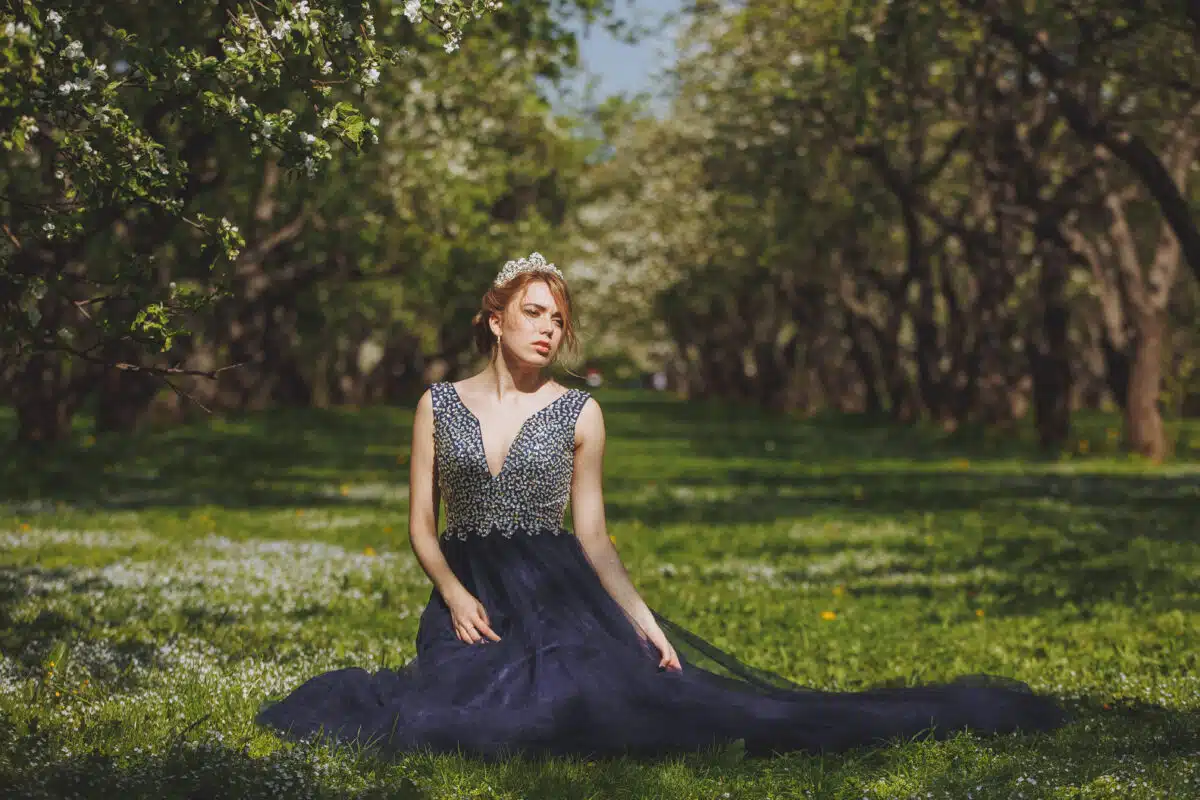
“Apology For Retirement” by Frances Maria Cowper
I have no leisure to bestow
Where nought but sin and folly grow.
The world’s society unknown,
My choicest hours are pass’d alone: —
Alone indeed I cannot be,
If God vouchsafe to dwell with me.
Think not, my friend, I censure those
Whom Providence hath wisely chose
To shine in more conspicuous light,
As stars that gild the darksome night;
Such, whose high worth their deeds proclaim,
And fix them in the ranks of fame:
These to the world are blessings given,
The bounty of all -bounteous Heaven.
But I-whom no distinctions charm,
Whose breast no public praise can warm;
Who, from life’s gayer scenes retir’d,
Taste pleasures more to be desir’d,
Than wealth, or power, or honours give—
Must live unknown, or cease to live.
Oh happy hours that once I knew,
Ere yet I bade thy shades adieu,
My native haunt! -yet here I find
Content, that sunshine of the mind;
Her influence my bosom fills,
Soother of life’s ten thousand ills .
Come then, Retirement, peaceful guest;
And Love, true harbinger of rest;
That ” Love divine all loves excelling;”
Illuminate my humble dwelling.
Every choicest blessing bring
From Piety’s exhaustless spring:
For some delightful theme explore
All Contemplation’s richest store.
Let Wisdom’s heavenly force impart
Divine instruction to my heart;
The salutary use explain
Of trials , cares, affliction, pain;
How needful each to erring Man,
Too ignorant himself to scan,
Too blind his int’rest to discern,
Too proud the ways of Heaven to learn;
In self-conceit supremely wise,
He scorns the wisdom of the skies,
Dotes on the toys of time and sense,
Nor looks beyond what those dispense.
Tremble, my soul, for men at ease,
Whose painted bark no ruffling breeze
Impedes ; but rapidly they glide,
Unthinking, down the silver tide
Of gay prosperity; nor know
Of other Heaven than that below.
“Retirement” by James Beattie
When in the crimson cloud of Even,
The lingering light decays,
And Hesper on the front of Heaven
His glittering gem displays!
Deep in the silent vale, unseen,
Beside a lulling stream,
A pensive Youth of placid mien,
Indulged this tender theme.
Ye cliffs, in hoary grandeur piled
High o’er the glimmering dale;
Ye woods, along whose windings wild
Murmurs the solemn gale;
Where Melancholy strays forlorn,
And Wo retires to weep,
What time the wan moon’s yellow horn
Gleams on the western deep:
To you, ye wastes, whose artless charms
Ne’er drew Ambition’s eye,
‘Scaped a tumultuous world’s alarms,
To your retreats I fly.
Deep in your most sequester’d bower
Let me at last recline,
Where Solitude, mild, modest Power,
Leans on her ivy’d shrine.
How shall I woo thee, matchless Fair!
Thy heavenly smile how win!
Thy smile, that smoothes the brow of Care,
And stills the storm within.
O wilt thou to thy favourite grove
Thine ardent votary bring,
And bless his hours, and bid them move
Serene, on silent wing.
Oft let remembrance soothe his mind
With dreams of former days,
When in the lap of Peace reclined
He framed his infant lays;
When Fancy roved at large, nor Care
Nor cold Distrust alarm’d,
Nor Envy with malignant glare
His simple youth had harm’d.
‘Twas then, O Solitude, to thee
His early vows were paid,
From heart sincere, and warm, and free,
Devoted to the shade.
Ah why did Fate his steps decoy
In stormy paths to roam,
Remote from all congenial joy! —
O take the wanderer home.
Thy shades, thy silence, now be mine,
Thy charms my only theme;
My haunt the hollow cliff, whose pine
Waves o’er the gloomy stream,
Whence the sacred owl on pinions gray
Breaks from the lone vale sails away
To more profound repose.
O while to thee the woodland pours
Its wildly-warbling song,
And balmy from the banks of flowers
The zephyr breathes along;
Let no rude sounds invade from far,
No vagrant foot be nigh,
No ray from Grandeur’s gilded car,
Flash on the startled eye.
But if some pilgrim through the glade
Thy hallow’d bowers explore,
O guard from harm his hoary head,
And listen to his lore:
For he of joys divine shall tell
That wean from earthly wo,
And triumph o’er the mighty spell
That chains this heart below.
For me no more the path invites
Ambition loves to tread;
No more I climb those toilsome heights
By guileful Hope misled;
Leaps my fond fluttering heart no more
To mirth’s enlivening strain;
For present pleasure soon is o’er,
And all the past is vain.
From “This Lime-Tree Bower My Prison” by Samuel Taylor Coleridge
A delight Comes sudden on my heart, and I am glad
As I myself were there! Nor in this bower,
This little lime- tree-bower, have I not mark’d
Much that has sooth’d me. Pale beneath the blaze
Hung the transparent foliage; and I watch’d
Some broad and sunny leaf, and lov’d to see
The shadow of the leaf and stem above
Dappling its sunshine ! And that walnut-tree
Was richly ting’d, and a deep radiance lay
Full on the ancient ivy, which usurps
Those fronting elms, and now, with blackest mass
Makes their dark branches gleam a lighter hue
Through the late twilight : and though now the bat
Wheels silent by, and not a swallow twitters,
Yet still the solitary humble bee
Sings in the bean-flower ! Henceforth I shall know
That Nature ne’er deserts the wise and pure,
No plot so narrow, be but Nature there,
No waste so vacant, but may well employ
Each faculty of sense, and keep the heart
Awake to love and beauty! and sometimes
‘Tis well to be bereft of promised good,
That we may lift the soul, and contemplate
With lively joy the joys we cannot share.

“My Triumph” by John Greenleaf Whittier
The autumn-time has come;
On woods that dream of bloom,
And over purpling vines,
The low sun fainter shines.
The aster-flower is failing,
The hazel’s gold is paling;
Yet overhead more near
The eternal stars appear!
And present gratitude
Insures the future’s good,
And for the things I see
I trust the things to be;
That in the paths untrod,
And the long days of God,
My feet shall still be led,
My heart be comforted.
O living friends who love me!
O dear ones gone above me!
Careless of other fame,
I leave to you my name.
Hide it from idle praises,
Save it from evil phrases:
Why, when dear lips that spake it
Are dumb, should strangers wake it?
Let the thick curtain fall;
I better know than all
How little I have gained,
How vast the unattained.
Not by the page word-painted
Let life be banned or sainted:
Deeper than written scroll
The colors of the soul.
Sweeter than any sung
My songs that found no tongue;
Nobler than any fact
My wish that failed of act.
Others shall sing the song,
Others shall right the wrong,—
Finish what I begin,
And all I fail of win.
What matter, I or they?
Mine or another’s day,
So the right word be said
And life the sweeter made?
Hail to the coming singers!
Hail to the brave light-bringers!
Forward I reach and share
All that they sing and dare.
The airs of heaven blow o’er me;
A glory shines before me
Of what mankind shall be,—
Pure, generous, brave, and free.
A dream of man and woman
Diviner but still human,
Solving the riddle old,
Shaping the Age of Gold!
The love of God and neighbor;
An equal-handed labor;
The richer life, where beauty
Walks hand in hand with duty.
Ring, bells in unreared steeples,
The joy of unborn peoples!
Sound, trumpets far off blown,
Your triumph is my own!
Parcel and part of all,
I keep the festival,
Fore-reach the good to be,
And share the victory.
I feel the earth move sunward,
I join the great march onward,
And take, by faith, while living,
My freehold of thanksgiving.
“Retirement” by John Newton
Far from the world, O Lord, I flee,
From strife and tumult far;
From scenes where Satan wages still
His most successful war.
The calm retreat, the silent shade,
With prayer and praise agree;
And seem by thy sweet bounty made
For those who follow Thee.
There, if thy Spirit touch the soul,
And grace her mean abode,
Oh, with what peace, and joy, and love,
She communes with her God!
There like the nightingale she pours
Her solitary lays;
Nor asks a witness of her song,
Nor thirsts for human praise.
Author and Guardian of my life,
Sweet source of light divine,
And (all harmonious names in one)
My Saviour, Thou art mine.
What thanks I owe Thee, and what love,
Aboundless, endless store,
Shall echo through the realms above
When time shall be no more.
From “Poetry Of Nature” by Hannah Bryant Hazeltine
There’s poetry in all things! in the sun at close of day,
When Nature seems to seek repose and winds have died away;
The gorgeous clouds come gathering ‘ round the threshold of the west,
To bid the day-god a farewell ere sinking to his rest.
There’s poetry in all things! in the gentle, modest moon,
As she, with her bright crystal light, dispels night’s mystic gloom;
She sheds upon me as I sleep her soft and mellow beams,
And seems to bathe in beauty new the spirit of my dreams.
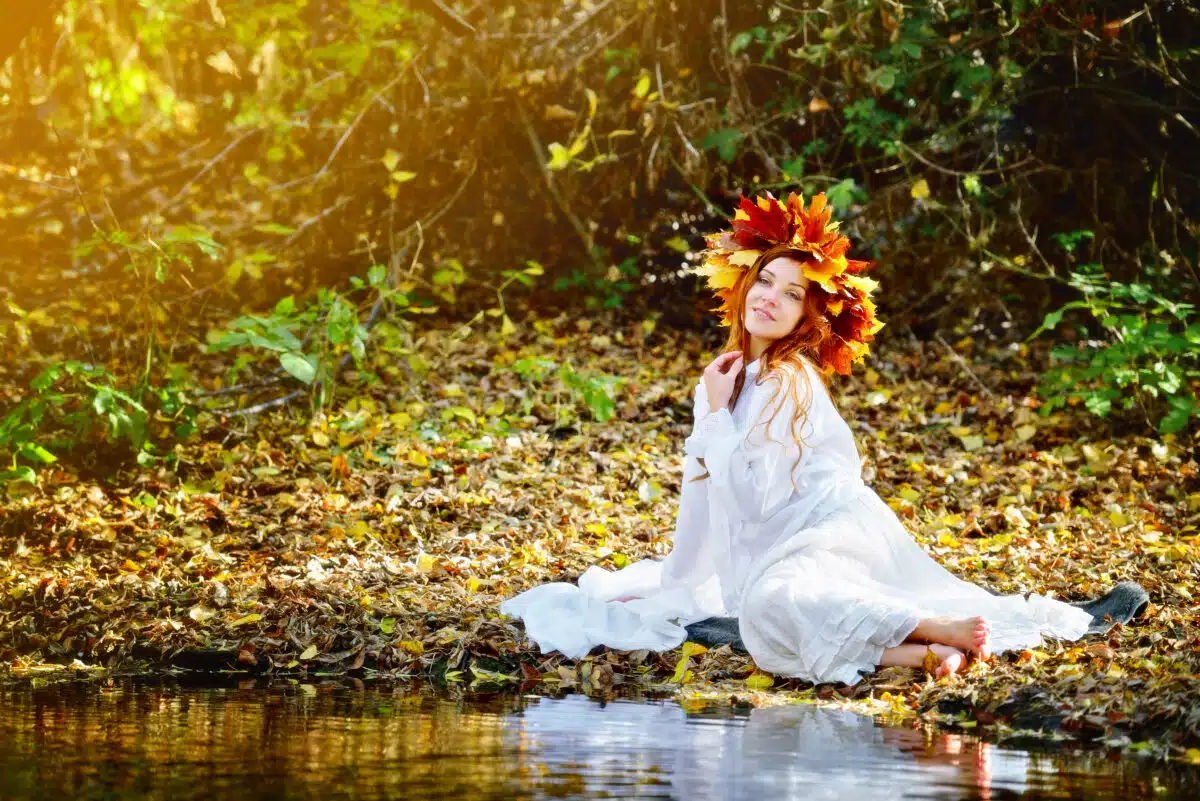
“Motives For Retirement” by Joseph William Jenks
Thus some retire to nourish hopeless woe;
Some seeking happiness not found below;
Some to comply with humor, and a mind
To social scenes by nature disinclined;
Some swayed by fashion, some by deep disgust;
Some self-impoverished, and because they must;
But few, that court retirement, are aware
Of half the toils they must encounter there.
Lucrative offices are seldom lost
For want of powers proportioned to the post:
Give even a dunce the employment he desires,
And he soon finds the talents it requires;
A business with an income at its heels
Furnishes always oil for its own wheels.
But in his arduous enterprise to close
His active years with indolent repose,
He finds the labors of that state exceed
His utmost faculties, severe indeed!
“An Invitation” by Hannah Bryant Hazeltine
Come forth, and leave the scene
Of noisy city, and within the woods
Wander awhile, amid the solitudes
Of forests green.
Come where the fountain gushes,
And throws its waters to the summer air;
Leave ye yon scorching streets, and fly to where
The cascade rushes.
Rest where, with voice of love,
The gentle rills sing to the midnight breeze ;
In a lone vale, where tall primeval trees
Unite above.
Seek ye the grotto deep,
Where music murmurs, soft as sea-shell’s moan;
Wooing, with the low cadence of its tone,
The soul to sleep.
Come where the robins meet
For vespers, in the tops of sighing pines;
Come where the grape forms with its trailing vines,
An arbor sweet.
Come, where at eve is heard
The tinkling bell upon the distant hills;
Come where the flowers the air with fragrance fills,
By zephyrs stirred.
And ye, who love to trace
The beautiful in Nature’s wildest forms,
In rugged mountains, or in thunder storms,
Here is your place.
Come, then from dusty walls,
Where the sun pours from burning skies above,
And walk with me through yonder shady grove —
‘Tis Nature calls.
From “Golden Days” by Hannah Bryant Hazeltine
Golden years ! Age has its golden years,
When its wars and tumults all are over;
When we’ve crossed the mountaintop of tears
Brighter views the western slopes discover;
Here we bask in the soft setting sun,
Glad to feel the toil of life is done.
Glad to feel the weary hands may rest;
Glad to close the eyes that ache with seeing;
Glad to know the burdens that oppressed,
Shadow-like, are softly, swiftly stealing;
Glad to know upon a Father’s arm
We now may rest nor heed the world’s alarm.
In calm content we view our duties done,
Our cherished hopes in God’s own way fulfilled;
Our sheaves all garnered at the set of sun,
— The storms all passed the wailing winds all stilled;
Waiting the summons that the angels bring
To call us to the presence of the King.

“The Love’s Moonlight Walk—The Love-Letter—His Tantalizing Dreams” by Joseph William Jenks
Thus in soft anguish he consumes the day,
Nor quits his deep retirement, till the moon
Peeps through the chambers of the fleecy east,
Enlightened by degrees, and in her train
Leads on the gentle Hours; then forth he walks,
Beneath the trembling languish of her beam,
With softened soul, and woos the bird of eve
To mingle woes with his ; or, while the world
And all the sons of Care lie hushed in sleep,
Associates with the midnight shadows drear;
And, sighing to the lonely taper, pours
His idly-tortured heart into the page
Meant for the moving messenger of love;
Where rapture burns on rapture, every line
With rising frenzy fired. But, if on bed
Delirious flung, sleep from his pillow flies.
All night he tosses, nor the balmy power
In any posture finds; till the gray morn
Lifts her pale lustre on the paler wretch,
Exanimate by love and then perhaps
Exhausted nature sinks a while to rest,
Still interrupted by distracted dreams,
That o’er the sick imagination rise,
And in black colors paint the mimic scene.
Oft with the enchantress of his soul he talks;
Sometimes in crowds distressed; or if retired
To secret, winding, flower-enwoven bowers,
Far from the dull impertinence of man,
Just as he, credulous, his endless cares
Begins to lose in blind oblivious love,
Snatched from her yielded hand, he knows not how,
Through forests huge, and long untravelled heaths
With desolation brown, he wanders waste,
In night and tempest wrapped; or shrinks aghast,
Back, from the bending precipice ; or wades
The turbid stream below, and strives to reach
The further shore; where, succorless and sad,
She with extended arms his aid implores;
But strives in vain; borne by the outrageous flood
To distance down, he rides the ridgy wave,
Or whelmed beneath the boiling eddy sinks.
“Praise Of Seclusion And Retirement” by Joseph William Jenks
O, blest seclusion from a jarring world,
Which he, thus occupied , enjoys! Retreat
Cannot indeed to guilty man restore
Lost innocence, or cancel follies past;
But it has peace, and much secures the mind
From all assaults of evil; proving still
A faithful barrier, not o’erleaped with ease
By vicious custom, raging uncontrolled
Abroad, and desolating public life .
When fierce temptation, seconded within
By traitor appetite, and armed with darts
Tempered in hell, invades the throbbing breast,
To combat may be glorious, and success
Perhaps may crown us; but to fly is safe.
Had I the choice of sublunary good,
What could I wish, that I possess not here? peace,
Health, leisure, means to improve it, friendship,
No loose or wanton, though a wandering, muse,
And constant occupation without care.
“Blessings of Rural Life—Civil Ware—Virgil’s Rural Possessions Restored” by Joseph William Jenks
Thrice blest the man from public storms aloof,
That loves the shelter of his cottage- roof;
In sweet retirement shuns the general view,
Improves his garden, arts, and virtue too.
Thus, when the stern Triumvir’s blood- stained hand
Spread dreadful ruin o’er the Roman land,
The Mantuan bard, while party billows rolled,
His sylvan loves to ravished Echo told.
Who then had dared with war’s tumultuous sound
The peaceful dwelling of his muse surround?
When Rome, at length respiring from her toils,
Beneath a milder reign forgot her broils,
The world’s great master saw him, at his feet,
His field paternal from his gift entreat;
Soon, soon again from courtly scenes removed,
By Pan and every rural god beloved,
Near the bright lake with silver swans o’erspread,
He trod the verdure of the Mantuan mead.
Here ‘ midst the peaceful groves and wandering herd
Soft o’er the reed his tuneful voice was heard,
While with the music of his dulcet song
To rural bliss he drew the mind along.
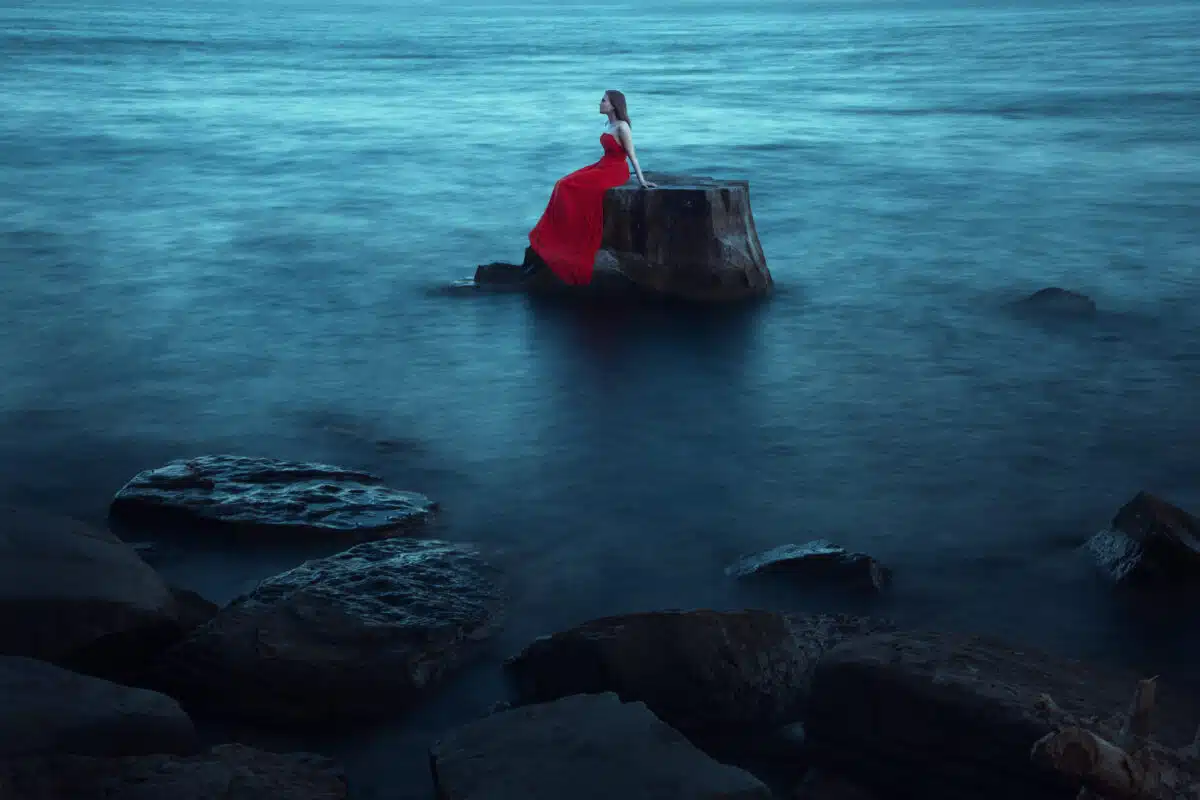
“Spiritual Progress The True Purpose of Life; Self-Conquest The Worthiest Ambition” by Joseph William Jenks
Therefore in contemplation is his bliss,
Whose power is such, that whom she lifts from
She makes familiar with a heaven unseen,
And shows him glories yet to be revealed.
Not slothful he, though seeming unemployed,
And censured oft as useless. Stillest streams
Oft water fairest meadows, and the bird
That flutters least is longest on the wing.
Ask him, indeed, what trophies he has raised,
Or what achievements of immortal fame
He purposes, and he shall answer—None.
His warfare is within. There unfatigued
His fervent spirit labors. There he fights,
And there obtains fresh triumphs o’er himself,
And never-withering wreaths; compared with which
The laurels that a Cæsar reaps are weeds.
Retirement Poems for Colleagues
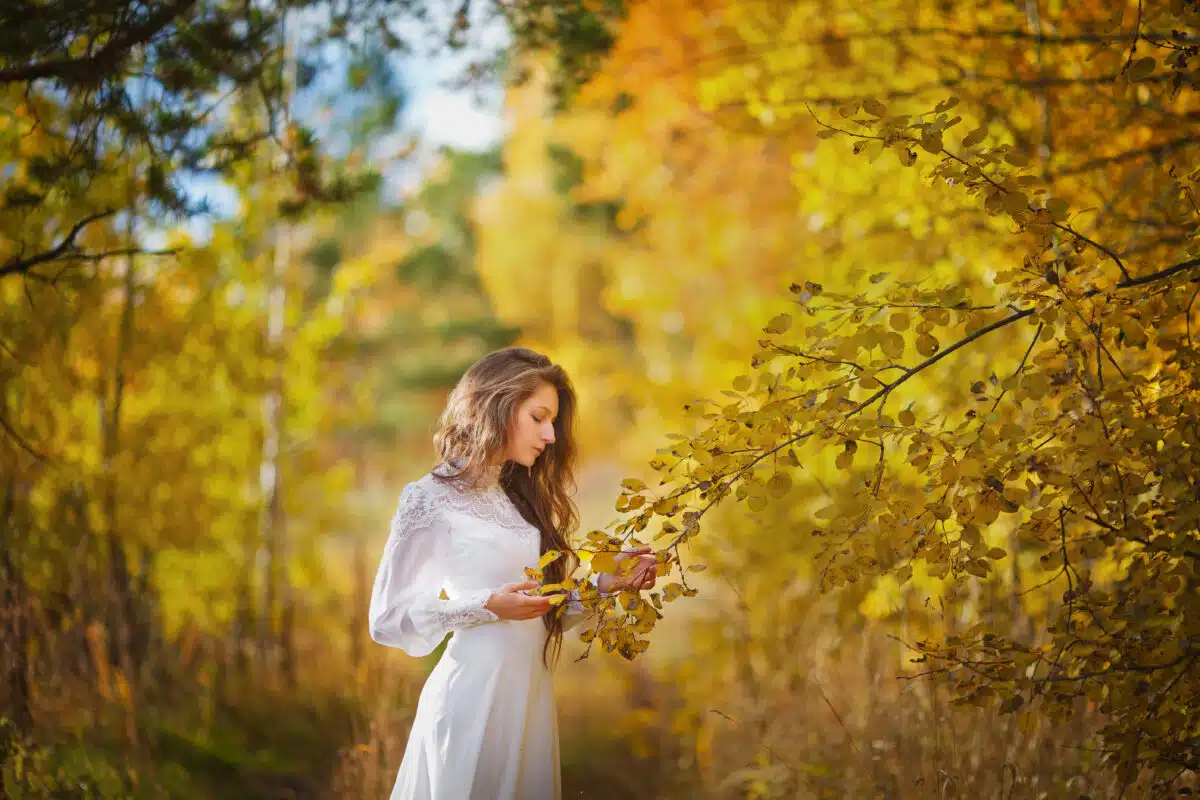
“Retirement” by Henry Timrod
My gentle friend! I hold no creed so false
As that which dares to teach that we are born
For battle only, and that in this life
The soul, if it would burn with starlike power,
Must needs forsooth be kindled by the sparks
Struck from the shock of clashing human hearts.
There is a wisdom that grows up in strife,
And one I like it best—that sits at home
And learns its lessons of a thoughtful ease.
So come! a lonely house awaits thee!-there
Nor praise, nor blame shall reach us, save what love
Of knowledge for itself shall wake at times
In our own bosoms ; come ! and we will build
A wall of quiet thought, and gentle books,
Betwixt us and the hard and bitter world.
Sometimes-for we need not be anchorites
A distant friend shall cheer us through the Post,
Or some Gazette-of course no partisan
Shall bring us pleasant news of pleasant things;
Then, twisted into graceful allumettes,
Each ancient joke shall blaze with genuine flame
To light our pipes and candles ; but to wars,
Whether of words or weapons, we shall be
Deaf-so we twain shall pass away the time
Ev’n as a pair of happy lovers, who,
Alone, within some quiet garden-nook,
With a clear night of stars above their heads,
Just hear, betwixt their kisses and their talk,
The tumult of a tempest rolling through
A chain of neighboring mountains ; they awhile
Pause to admire a flash that only shows
The smile upon their faces, but, full soon,
Turn with a quick, glad impulse, and perhaps
A conscious wile that brings them closer yet,
To dally with their own fond hearts, and play
With the sweet flowers that blossom at their feet.
“Picture Of A Happy Life; Connubial Bliss—Euthanasia” by Joseph William Jenks
O, speak the joy! ye, whom the sudden tear
Surprises often, while you look around,
And nothing strikes your eye but sights of bliss,
All various Nature pressing on the heart:
An elegant sufficiency, content,
Retirement, rural quiet, friendship, books,
Ease and alternate labor, useful life,
Progressive virtue, and approving Heaven!
These are the matchless joys of virtuous love;
And thus their moments fly. The Seasons thus,
As ceaseless round a jarring world they roll,
Still find them happy; and consenting Spring
Sheds her own rosy garland on their heads:
Till evening comes at last, serene and mild;
When after the long vernal day of life,
Enamored more as more remembrance swells
With many a proof of recollected love,
Together down they sink in social sleep;
Together freed, their gentle spirits fly
To scenes where love and bliss immortal reign.
From “Retired Hours” by Frances Maria Cowper
Ye gentle days that once were mine,
In every charm of life array’d,
No more awaken my regret,
No more my settled peace invade.
Fresh hope of permanent delight
My meditating thoughts pursue;
Nor can the charms of time or sense
Obscure the bright, the heavenly view.
My convert heart delights to muse
On fallen man’s deliv’rance found,
The sacrifice, the cleansing blood,
That for his bleeding guilt aton’d:
Of man’s estate in Paradise,
Of endless mercy’s wide display,
Of cov’nant love, and Gospel grace,
That point to Heaven th’ unerring way:
Such themes as these, in early years,
My secret hours have oft inspir’d,
My infant hands with wonder rais’d,
My infant heart with rapture fir’d.
Witness, ye saints invisible,
Ye guests unseen, whose guardian care
Preserves the soul from threat’ning ill,
And wafts to Heaven the pious tear.
Witness-for ye have oft beheld
How (for superior joys design’d),
My humble steps retirement sought,
Leaving the busy world behind:
How, in the sweet sequester’d shade,
Where -‘s fair meand’ring flood
Pours its rich streams around the plains,
And gurgles near the favourite wood;
At morn, at noon, at dewy eve,
Oft by the moon’s soft-glancing ray,
In search of Wisdom’s rare delights.
My feet unwearied lov’d to stray.
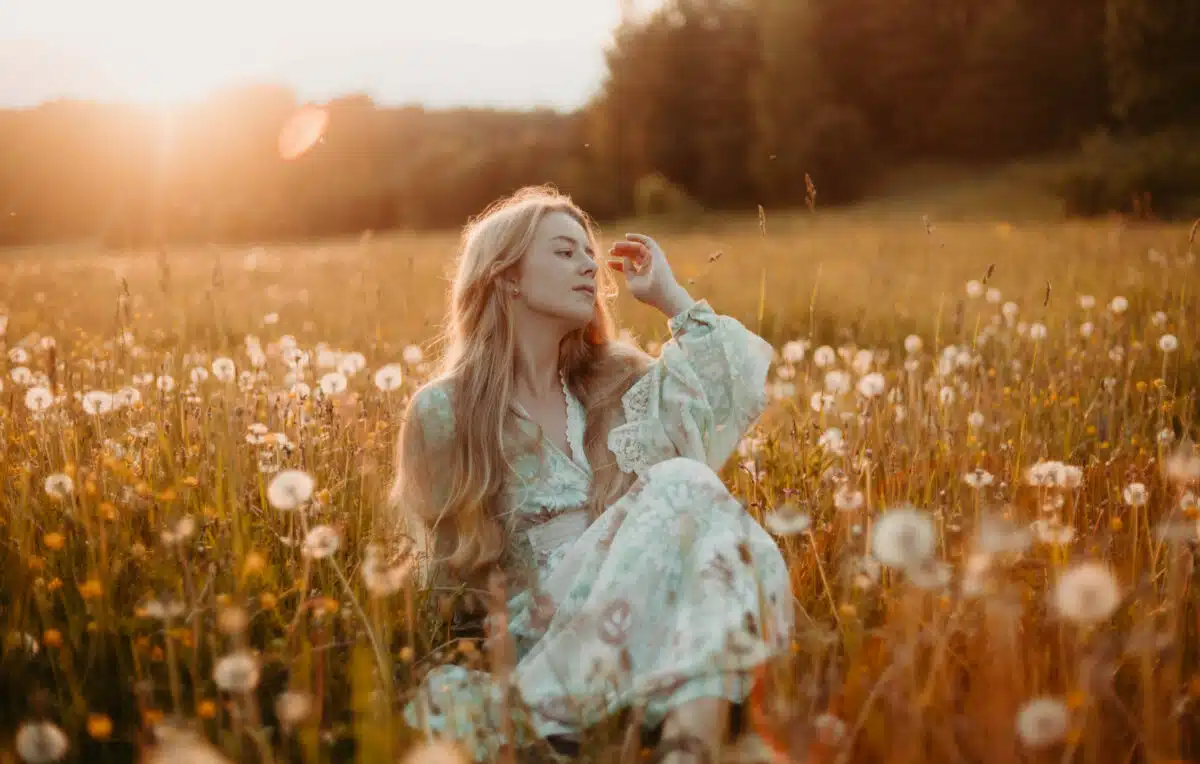
“Various Motives to Retirement” by Joseph William Jenks
Nor these alone prefer a life recluse,
Who seek retirement for its proper use;
The love of change, that lives in every breast,
Genius, and temper, and desire of rest,
Discordant motives in one centre meet,
And each inclines its votary to retreat.
Some minds by nature are averse to noise,
And hate the tumult half the world enjoys,
The lure of avarice, or the pompous prize,
That courts display before ambitious eyes;
The fruits that hang on pleasure’s flowery stem,
Whate’er enchants them, are no snares to them.
To them the deep recess of dusky groves,
Or forest, where the deer securely roves,
The fall of waters, and the song of birds,
And hills that echo to the distant herds,
Are luxuries excelling all the glare
The world can boast, and her chief favorites share.
“Philosophic Speculations in a Winter Retirement, With Friends—Cosmogony—Providence” by Joseph William Jenks
Thus in some deep retirement would I pass
The winter-glooms, with friends of pliant soul,
Or blithe, or solemn, as the theme inspired,
With them would search, if Nature’s boundless frame
Was called, late-rising from the void of night,
Or sprung eternal from the Eternal Mind;
Its life, its laws, its progress, and its end.
Hence larger prospects of the beauteous whole
Would, gradual, open on our opening minds;
And each diffusive harmony unite
In full perfection to the astonished eye.
Then would we try to scan the moral world,
Which, though to us it seems embroiled, moves on
In higher order; fitted and impelled
By Wisdom’s finest hand, and issuing all
In general good.
“Retirement Forbids Not The Highest Usefulness —Isaac” by Joseph William Jenks
Perhaps the self-approving, haughty World,
That as she sweeps him with her whistling silks
Scarce deigns to notice him, or, if she see,
Deems him a cipher in the works of God,
Receives advantage from his noiseless hours,
Of which she little dreams. Perhaps she owes
Her sunshine and her rain, her blooming Spring
And plenteous harvest, to the prayer he makes
When, Isaac- like, the solitary saint
Walks forth to meditate at eventide,
And think on her, who thinks not for herself.
Forgive him, then, thou bustler in concerns
Of little worth, an idler in the best,
If, author of no mischief, and some good,
He seek his proper happiness by means
That may advance, but cannot hinder, thine.
Nor, though he tread the secret path of life,
Engage no notice, and enjoy much ease,
Account him an incumbrance on the state,
Receiving benefits, and rendering none.
His sphere, though humble, if that humble sphere
Shine with his fair example, and though small
His influence, if that influence all be spent
In soothing sorrow and in quenching strife,
In aiding helpless indigence, in works
From which at least a grateful few derive
Some taste of comfort in a world of woe
Then let the supercilious great confess
He serves his country, recompenses well
he state, beneath the shadow of whose vine
He sits secure, and in the scale of life
Holds no ignoble, though a slighted, place.
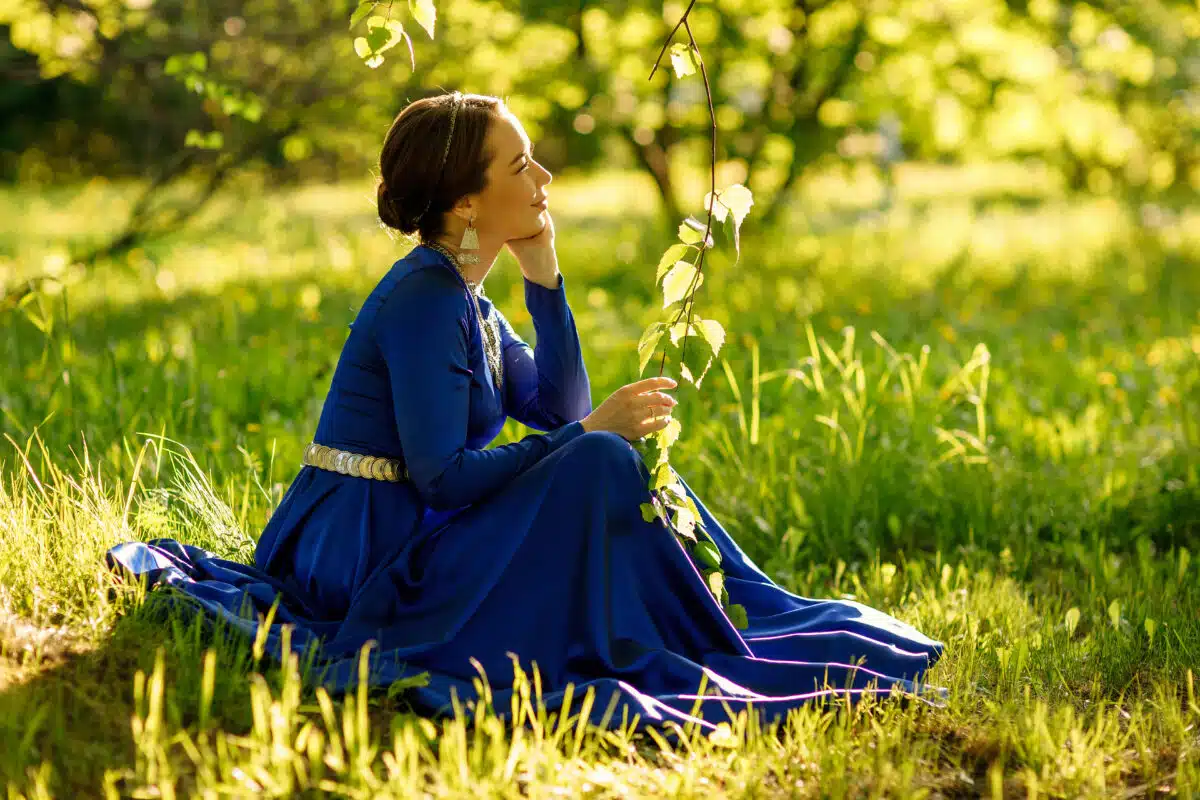
“The Noontide Retreat” by Joseph William Jenks
Now when the height of heaven bright Phoebus gains,
And his steep rays cleave wide the thirsty plains;
When heifers seek the shade and cooling lake,
And in the middle pathway basks the snake;
O lead me, guard me from the sultry hours,
Hide me, ye forests, in your closest bowers,
Where the tall oak his spreading arms entwines,
And with the beech a mutual shade combines;
Where flows the murmuring brook, inviting dreams,
Where bordering hazel overhangs the streams,
Whose rolling current, winding round and round,
With frequent falls makes all the wood resound;
Upon the mossy couch my limbs I cast,
And e’en at noon the sweets of evening taste.
“Thanatopsis” by William Cullen Bryant
O him, who, the love of Nature, holds
Communion with her visible forms, she speaks
And a palm thatch shields from the sun aloft!
His dress is woven of palmy strands,
And he holds a palm- leaf scroll in his hands,
Traced with the Prophet’s wise commands!
Avarious language: for his gayer hours
She has a voice of gladness and a smile
And eloquence of beauty; and she glides
Into his darker musings with a mild
And gentle sympathy, that steals away
Their sharpness, ere he is aware. When thoughts
Ofthe last bitter hour come like a blight
Over thy spirit, and sad images
Of the stern agony, and shroud, and pall,
And breathless darkness, and the narrow house,
Make thee to shudder, and grow sick at heart,
Go forth under the open sky and list
To Nature’s teachings, while from all around
Earth and her waters, and the depths of air
Comes a still voice, -Yet a few days, and thee
The all beholding sun shall see no more
In all his course ; nor yet in the cold ground,
Where thy pale form was laid, with many tears,
Nor in the embrace of ocean, shall exist
Thy image. Earth, that nourished thee, shall claim
Thy growth, to be resolved to earth again;
And, lost each human trace, surrendering up
Thine individual being, shalt thou go
To mix forever with the elements;
To be a brother to the insensible rock,
And to the sluggish clod, which the rude swain
Turns with his share, and treads upon. The oak
Shall send his roots abroad, and pierce thy mould.
Yet not to thy eternal resting- place
Shalt thou retire alone, -nor couldst thou wish
Couch more magnificent. Thou shalt lie down
With patriarchs of the infant world, -with kings,
The powerful of the earth, —the wise, the good,
Fair forms and hoary seers of ages past,
All in one mighty sepulchre. The hills,
Rock-ribbed, and ancient as the sun ; the vales
Stretching in pensive quietness een ;
The venerable woods; rivers that move
In majesty, and the complaining brooks,
That make the meadows green; and, poured round all,
Old ocean’s gray and melancholy waste,
Are but the solemn decorations all-
Of the great tomb of man! The golden sun,
The planets, all the infinite host of heaven,
Are shining on the sad abodes of death,
Through the still lapse of ages. All that tread
The globe are but a handful to the tribes
That slumber in its bosom. Take the wings
Of morning, traverse Barca’s desert sands,
Or lose thyself in the continuous woods
Where rolls the Oregon, and hears no sound
Save its own dashings. —Yet the dead are there!
And millions in those solitudes , since first
The flight of years began, have laid them down
In their last sleep, —the dead reign there alone!
So shalt thou rest: and what if thou withdraw
In silence from the living, and no friend
Take note of thy departure? The gay will laugh
When thou art gone, the solemn brood of care
Plod on, and each one, as before , will chase
His favorite phantom; yet all these shall leave
Their mirth and their employments, and shall come
And make their bed with thee. As the long train
Of ages glide away, the sons of men
The youth in life’s green spring , and he who goes
In the full strength of years, matron and maid,
The bowed with age, the infant in the smiles
And beauty of its innocent age cut off
hall one by one, be gathered to thy side
By those who in their turn shall follow them.
So live that when thy summons comes to join
The innumerable caravan that moves
To the pale realms of shade, where each shall take
His chamber in the silent hails of death,
They go not like the quarry- slave at night,
Scourged to his dungeon but sustained and soothed
By an unfaltering trust; approach thy grave
Like one who wraps the drapery of his couch
About him and lies down to pleasant dreams.
“Success” by W. M. MacKeracher
What is success? In mad soul-suicide
The world’s vain spoils rapaciously to seize,
To pamper the base appetite of pride,
And live a lord in luxury and ease?
Is this success, whereof so many prate? –
To have the Midas-touch that turns to gold
Earth’s common blessings? to accumulate,
And in accumulation to grow old?
Nay, but to see and undertake with zest
The good most in agreement with our powers,
To strive, if need be, for the second best,
But still to strive, and glean the golden hours,
With eyes for nature, and a mind for truth,
And the brave, loving, joyous heart of youth.
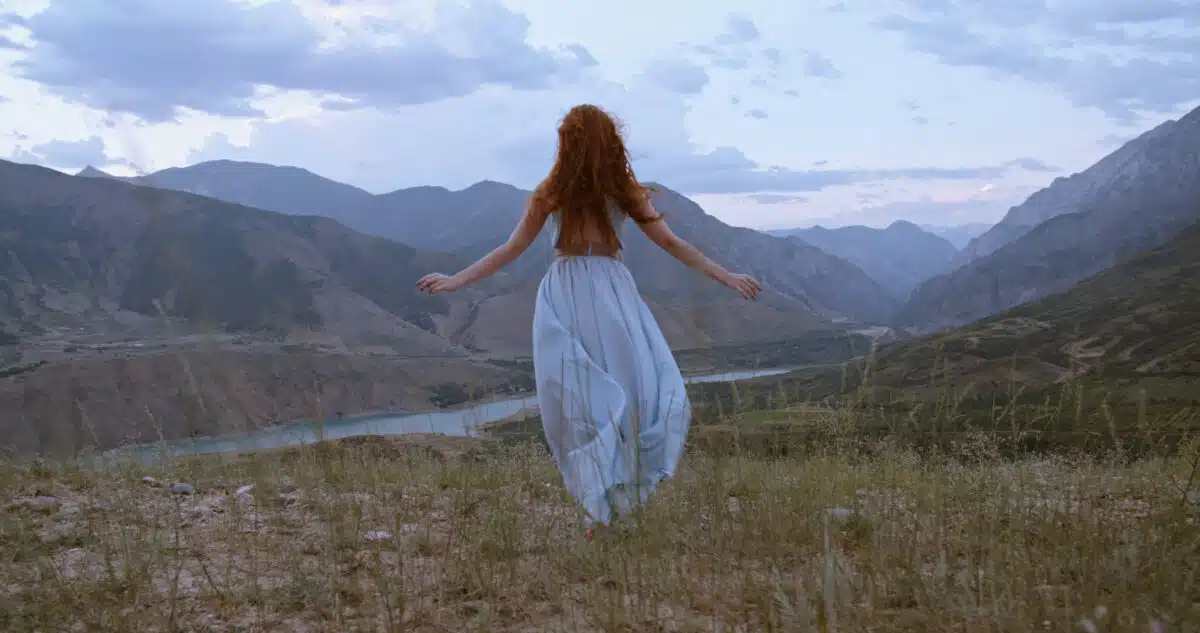
“A Virtuous Retirement The Type of the Happier Life To Come—Contented Obscurity” by Joseph William Jenks
He is the happy man, whose life even now
Shows somewhat of that happier life to come;
Who, doomed to an obscure but tranquil state,
Is pleased with it, and, were he free to choose,
Would make his fate his choice; whom peace, the
Of virtue, and whom virtue, fruit of faith,
Prepare for happiness -bespeak him one
Content indeed to sojourn while he must
Below the skies, but having there his home.
The world o’erlooks him in her busy search
Of objects, more illustrious in her view;
And, occupied as earnestly as she,
Though more sublimely, he o’erlooks the world.
She scorns his pleasures, for she knows them not;
He seeks not hers, for he has proved them vain.
He cannot skim the ground like summer birds
Pursuing gilded flies ; and such he deems
Her honors, her emoluments, her joys.
“Happiness” by John Frederick Freeman
I have found happiness who looked not for it.
There was a green fresh hedge,
And willows by the river side,
And whistling sedge.
The heaviness I felt was all around.
No joy sang in the wind.
Only dull slow life everywhere,
And in my mind.
Then from the sedge a bird cried; and all changed.
Heaviness turned to mirth:
The willows the stream’s cheek caressed,
The sun the earth.
What was it in the bird’s song worked such change?
The grass was wonderful.
I did not dream such beauty was
In things so dull.
What was it in the bird’s song gave the water
That living, sentient look?
Lent the rare brightness to the hedge?
That sweetness shook
Down on the green path by the running water?
Or the small daisies lit
With light of the white northern stars
In dark skies set?
What was it made the whole world marvellous?
Mere common things were joys.
The cloud running upon the grass,
Children’s faint noise,
The trees that grow straight up and stretch wide arms,
The snow heaped in the skies,
The light falling so simply on all;
My lifted eyes
That all this startling aching beauty saw?
I felt the sharp excess
Of joy like the strong sun at noon–
Insupportable bliss!
From “Lines Written In An Album” by Edward H. S. Holden
Now I’ll bid you farewell, with best wishes for health,
And worldly prosperity, falsely called wealth;
And the treasures which wear, without canker or rust,
That enrich when our body’s consigned to the dust.

“Fancies For Memories” by A. H. Clough
Over the great windy waters, and over the clear
crested summits,
Unto the sun and the sky, and unto the perfecter
earth,
Come, let us go,—to a land wherein gods of the old
time wandered,
Where every breath even now changes to ether
divine.
Come, let us go ; though withal a voice whisper,
‘The world that we live in,
Whithersoever we turn, still is the same narrow
crib;
‘Tis but to prove limitation, and measure a cord,
that we travel;
Let who would ‘ scape and be free go to his chamber
and think;
‘Tis but to change idle fancies for memories wilfully
falser;
‘Tis but to go and have been.’-Come, little bark!
let us go.
“Resignation” by Bliss Carman (William)
When I am only fit to go to bed,
Or hobble out to sit within the sun,
Ring down the curtain, say the play is done,
And the last petals of the poppy shed!
I do not want to live when I am old,
I have no use for things I cannot love;
And when the day that I am talking of
(Which God forfend!) is come, it will be cold.
But if there is another place than this,
Where all the men will greet me as “Old Man,”
And all the women wrap me in a smile,
Where money is more useless than a kiss,
And good wine is not put beneath the ban,
I will go there and stay a little while.
Retirement Poems That Rhyme
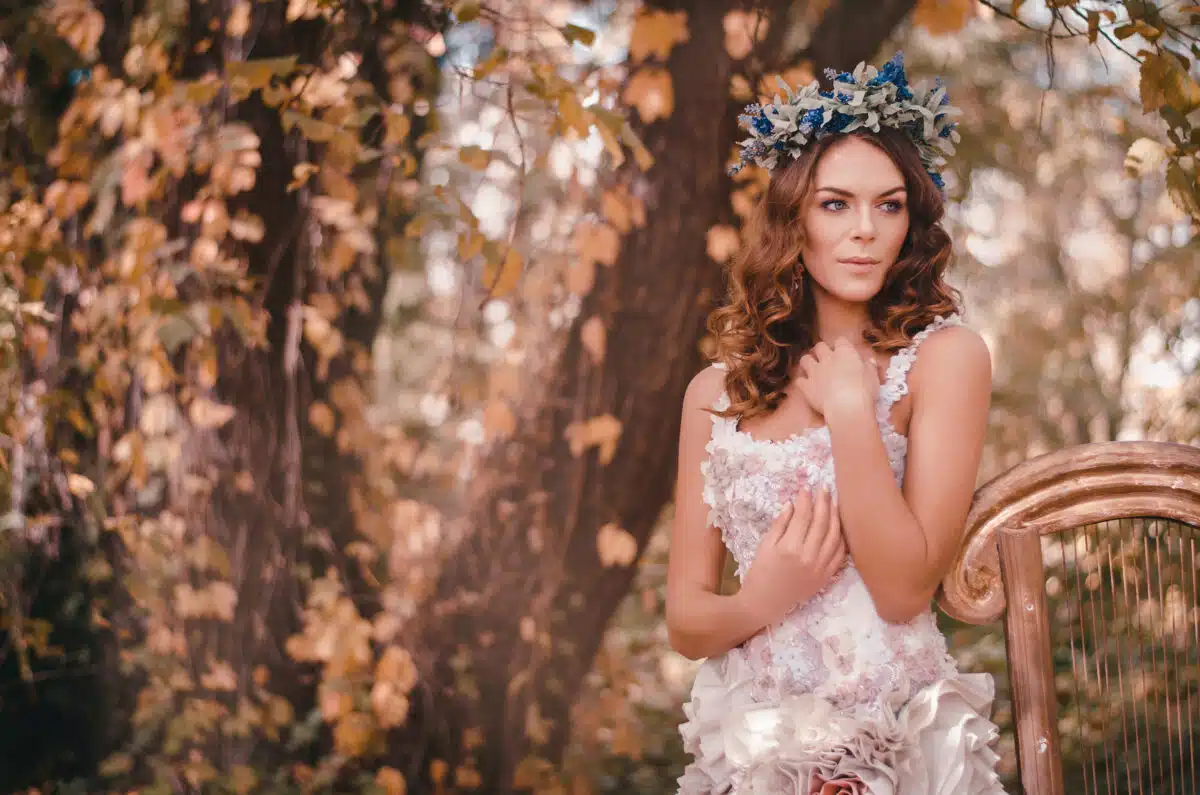
“The Retirement” by Charles Cotton
I
Farewell, thou busy world, and may
We never meet again:
Here can I eat, and sleep, and pray,
And do more good in one short day,
Than he who his whole age out wears
Upon the most conspicuous theatres,
Where nought but vice and vanity do reign.
II
Good God! how sweet are all things here!
How beautiful the fields appear!
How cleanly do we feed and lie!
Lord! what good hours do we keep!
How quietly we sleep!
What peace, what unanimity!
How innocent from the lewd fashion
Is all our bus’ness, all our conversation!
III
Oh how happy here’s our leisure!
Oh how innocent our pleasure!
Oh ye valleys, oh ye mountains!
Oh ye groves and crystal fountains,
How I love at liberty,
By turns to come and visit ye!
IV
O Solitude, the soul’s best friend,
That man acquainted with himself dost make,
And all his Maker’s wonders to intend;
With thee I here converse at will,
And would be glad to do so still;
For it is thou alone, that keep’st the soul awake.
V
How calm and quiet a delight
It is, alone
To read, and meditate, and write,
By none offended, nor offending none;
To walk, ride, sit, or sleep at one’s own ease,
And pleasing a man’s self, none other to displease!
VI
Oh my beloved nymph! fair Dove,
Princess of rivers, how I love
Upon thy flow’ry banks to lie,
And view thy silver stream,
When gilded by a summer’s beam!
And in it, all thy wanton fry
Playing at liberty,
And with my angle upon them
The all of treachery
I ever learn’d to practise and to try!
VII
Such streams Rome’s yellow Tiber cannot show,
Th’ Iberian Tagus, nor Ligurian Po;
The Meuse, the Danube, and the Rhine,
Are puddle-water all compar’d with thine;
And Loire’s pure streams yet too polluted are
With thine much purer to compare:
The rapid Garonne, and the winding Seine
Are both too mean,
Beloved Dove, with thee
To vie priority;
Nay, Tame and Isis, when conjoin’d, submit,
And lay their trophies at thy silver feet.
VIII
Oh my beloved rocks! that rise
To awe the earth, and brave the skies,
From some aspiring mountain’s crown
How dearly do I love,
Giddy with pleasure, to look down,
And from the vales to view the noble heights above!
IX
Oh my beloved caves! from dog-star heats,
And hotter persecution safe retreats,
What safety, privacy, what true delight,
In the artificial night,
Your gloomy entrails make,
Have I taken, do I take!
How oft, when grief has made me fly
To hide me from society,
Even of my dearest friends, have I
In your recesses’ friendly shade
All my sorrows open laid,
And my most secret woes entrusted to your privacy!
X
Lord! would men let me alone,
What an over-happy one
Should I think my self to be,
Might I in this desert place,
Which most men by their voice disgrace,
Live but undisturb’d and free!
Here in this despis’d recess
Would I maugre winter’s cold,
And the summer’s worst excess,
Try to live out to sixty full years old,
And all the while
Without an envious eye
On any thriving under Fortune’s smile,
Contented live, and then contented die.
From “Retirement” (1) by William Cowper
O sweet retirement! who would balk the thought,
That could afford retirement, or could not ?
‘Tis such an easy walk, so smooth and straight,
The second milestone fronts the garden gate ;
A step if fair, and if a shower approach,
You find safe shelter in the next stage-coach.
There prisoned in a parlour snug and small,
Like bottled wasps upon a southern wall,
The man of business and his friends compressed
Forget their labours, and yet find no rest;
But still ’tis rural-trees are to be seen
From every window, and the fields are green;
Ducks paddle in the pond before the door,
And what could a remoter scene show more?
A sense of elegance we rarely find
The portion of a mean or vulgar mind,
And ignorance of better things makes man,
Who cannot much, rejoice in what he can;
And he that deems his leisure well bestowed
In contemplation of a turnpike- road,
Is occupied as well, employs his hours
As wisely, and as much improves his powers,
As he that slumbers in pavilions graced
With all the charms of an accomplished taste.
Yet hence, alas ! insolvencies, and hence
The unpitied victim of ill judged expense,
From all his wearisome engagements freed,
Shakes hands with business, and retires indeed.
“Retirement More Friendly Than Business To Spiritual Progress” by Joseph William Jenks
Not that I mean t’ approve, or would enforce,
A superstitious and monastic course:
Truth is not local, God alike pervades
And fills the world of traffic and the shades,
And may be feared amidst the busiest scenes,
Or scorned where business never intervenes.
But ‘t is not easy, with a mind like ours,
Conscious of weakness in its noblest powers,
And in a world where, other ills apart,
The roving eye misleads the careless heart,
To limit thought, by nature prone to stray
Wherever freakish fancy points the way;
To bid the pleadings of self-love be still,
Resign our own and seek our Maker’s will;
To spread the page of Scripture, and compare
Our conduct with the laws engraven there;
To measure all that passes in the breast,
Faithfully, fairly, by that sacred test;
To dive into the secret deeps within,
To spare no passion and no favorite sin,
And search the themes, important above all,
Ourselves and our recovery from our fall .
But leisure, silence, and a mind released
From anxious thoughts how wealth may be in
How to secure, in some propitious hour, [creased,
The point of interest, or the post of power,
A soul serene, and equally retired
From objects too much dreaded or desired,
Safe from the clamors of perverse dispute,—
At least are friendly to the great pursuit.
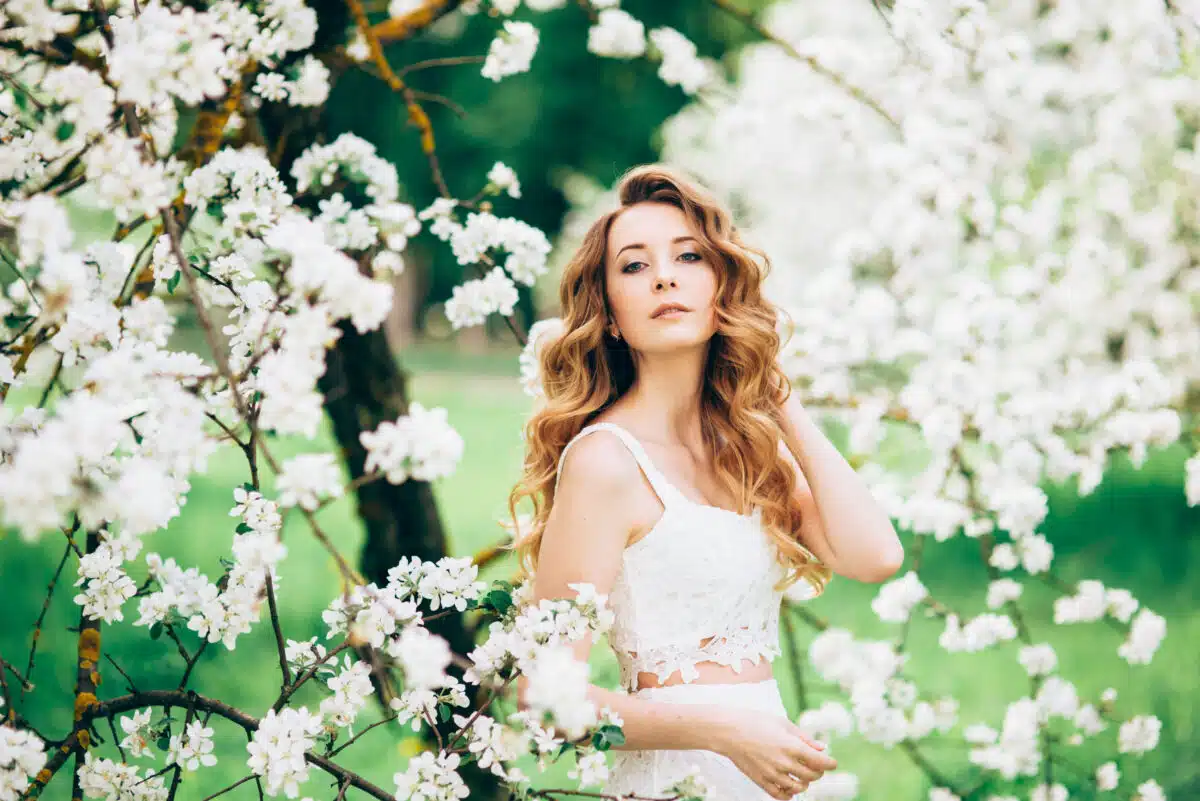
“Was, Is, and Yet-to-Be” by Ella Wheeler Wilcox
Was, Is, and Yet-to-Be
Were chatting over a cup of tea.
In tarnished finery smelling of must,
Was talked of people long turned to dust;
Of titles and honours and high estate,
All forgotten or out of date;
Of wonderful feasts in the long ago,
Of pride that perished with nothing to show.
“I loathe the present,” said Was, with a groan;
“I live in pleasures that I have known.”
The Yet-to-be, in a gown of gauze,
Looked over the head of musty Was,
And gazed far off into misty space
With a wrapt expression upon her face.
“Such wonderful pleasures are coming to me,
Such glory, such honour,” said Yet-to-be.
“No one dreamed, in the vast Has-Been,
Of such successes as I shall win.
“The past, the present—why, what are they?
I live for the joy of a future day.”
Then practical Is, in a fresh print dress,
Spoke up with a laugh, “I must confess
“I find to-day so pleasant,” she said,
“I never look back, and seldom ahead.
“Whatever has been, is a finished sum;
Whatever will be—why, let it come.
“To-day is mine. And so, you see,
I have the past and the yet-to-be;
“For to-day is the future of yesterday,
And the past of to-morrow. I live while I may,
“And I think the secret of pleasure is this.
And this alone,” said practical Is.
From “Desultory Thoughts on Solitude” by Michael Gordon
And he who doth despair on earth to find
A friendship purg’d from selfishness, nor stay’d
On hopes of flattery, or two hearts entwin’d
In one fond aim , else quickly doom’d to fade,
Will seek, perchance, the solitary shade,
Where dwells a Friend who dwelleth everywhere,
But cannot be so fervently obeyed,
So calmly viewed , or seen so purely fair,
As when the heart hath pause his whisper’d love to share.
And where that pause can we so sweetly seek
As in green leisure of the woodland rest,
Where we cannot seem poor, unlearn’d, or weak?
For who within that Eden would molest
Our hermit joys, or make our souls unblest
With frowning glory’s desolating sneer?
Of Nature’s wants , of root and rill possest,
Fresh in our health as that of any peer,
Tho’pamper’d sloth misnames our abstinence austere.
O may retirement’s pensive shade be mine,
Where I may flee away and be at rest;
Yet not the crowded coops where scholars dine,
Vultures of science, each in his base nest;
Far better to caress and be caress’d,
Than move amid the cold inanity
Of those who gaze with clear but unenraptur’d eye.
“Song” by Hannah Bryant Hazeltine
When the sun has sunk away,
When he bids farewell to day,
When the fleecy clouds of Heaven
Wear the softest blush of even,
When the silver lamps of night
Burn above with gentle light,
When the fragrant dew is falling,
When the bird her mate is calling,
Come then, love, to me.
When the world is lost in sleep
Come, and we will vigils keep ;
And the burning stars above
Shall be witness of our love.
Or, doth sorrow linger near thee?
Come, and with soft words I’ll cheer thee.
Or, thy weary head would’st rest ?
Come, and pillowed on my breast
I will sing to thee.

From “Retirement” (2) by William Cowper
Absence of occupation is not rest,
A mind quite vacant is a mind distressed.
The veteran steed excused his task at length,
In kind compassion of his failing strength,
And turned into the park or mead to graze,
Exempt from future service all his days,
There feels a pleasure perfect in its kind,
Ranges at liberty, and snuffs the wind:
But when his lord would quit the busy road,
To taste a joy like that he has bestowed,
He proves, less happy than his favoured brute,
A life of ease a difficult pursuit.
Thought, to the man that never thinks, may seem
As natural as when asleep to dream;
But reveries (for human minds will act)
Specious in show, impossible in fact,
Those flimsy webs that break as soon as wrought,
Attain not to the dignity of thought;
Nor yet the swarms that occupy the brain,
Where dreams of dress, intrigue, and pleasure reign;
Nor such as useless conversation breeds,
Or lust engenders, and indulgence feeds.
Whence, and what are we ? to what end ordained?
What means the drama by the world sustained?
Business or vain amusement, care or mirth,
Divide the frail inhabitants of earth.
Is duty a mere sport, or an employ?
Like an intrusted talent, or a toy?
Is there, as Reason, Conscience, Scripture say,
Cause to provide for a great future day,
When, earth’s assigned duration at an end,
Man shall be summoned and the dead attend?
The trumpet-will it sound ? the curtain rise?
And show the august tribunal of the skies,
Where no prevarication shall avail,
Where eloquence and artifice shall fail,
The pride of arrogant distinctions fall,
And Conscience and our Conduct judge us all?
“To The Glow-Worm” by John Clare
Tasteful Illumination of the night,
Bright scatter’d, twinkling star of spangled earth!
Hail to the nameless colour’d dark- and-light,
The witching nurse of thy illumin’d birth.
In thy still hour how dearly I delight
To rest my weary bones, from labour free;
In lone spots, out of hearing, out of sight,
To sigh day’s smother’d pains; and pause onthee,
Bedecking dangling brier and ivied tree,
Or diamonds tipping on the grassy spear;
Thy pale-fac’d glimmering light I love to see,
Gilding and glistering in the dew- drop near:
O still-hour’s mate! my easing heart sobs free,
While tiny bents lowbend with many an added tear.
“The Lover Seeks Retirement—His Sighs—His Idolatry” by Joseph William Jenks
The lover too shuns business and alarms,
Tender idolater of absent charms.
Saints offer nothing in their warmest prayers,
That he devotes not with a zeal like theirs;
‘T is consecration of his heart, soul, time,
And every thought that wanders is a crime.
In sighs he worships his supremely fair,
And weeps a sad libation in despair;
Adores a creature, and, devout in vain,
Wins in return an answer of disdain.

From “Ode To Beauty” by Mary Robinson
In calm retirement form’d to dwell,
NATURE, thy handmaid fair and kind,
For thee a beauteous garland twin’d;
The vale-nurs’d Lily’s downcast bell
Thy modest mien display’d,
The snow-drop, April’s meekest child ,
With myrtle blossoms undefild,
Thy spotless mind pourtray’d.
Dear blushing maid , of cottage birth,
‘ Twas thine o’er dewy meads to stray,
While sparkling health , and frolic mirth,
Led on thy laughing Day.
Lur’d by the babbling tongue of FAME,
Too soon insidious FLATT’Ry came ;
Flush’d Vanity her footsteps led ,
To charm thee from repose ,
While Fashion twin’d about thy head
A wreath of wounding woes ;
See Dissipation smoothly glide,
Cold Apathy, and puny Pride,
Capricious Fortune, dull and blind,
O’er splendid Folly throws her veil,
While Envy’s meagre tribe assail
Thy gentle form and spotless mind.
“Compliment to the Author (Delille) by the Polish Princess Czartorinska” by Joseph William Jenks
My vows are heard on ancient Vistula’s side,
Where roamed the Sarmat once, in savage pride,
Of royal stem, a fair and warlike race,
That in retirement give the country grace,
Amidst their bowers have taught my muse to hope
A tribute with Saint Lambert, Thomson, Pope.
How shall I dare the proud distinction boast?
‘ Midst names so glorious will not mine be lost?
Is there, perchance, some unfrequented spot,
Some distant nook, unnoticed or forgot,
Far, far from Gesner, or the Mantuan bard ?
Hosts of the scene, for me the asylum guard.
Glad shall I see you, ‘ midst the laughing vales,
Those lessons practise which my muse details ,
And, while dire party’s troubled waves ye break,
Enrich the hamlet, and the desert deck;
Happy, should Echo from her green retreat
My name, my homage, and my lays, repeat.
“Cadenabbia Lake of Como” by H. W. Longfellow
No sound of wheels or hoof-beat breaks
The silence of the summer day,
As by the loveliest of all lakes
I while the idle hours away.
I pace the leafy colonnade
Where level branches of the plane
Above me weave a roof of shade
Impervious to the sun and rain.
At times a sudden rush of air
Flutters the lazy leaves o’erhead,
And gleams of sunshine toss and flare
Like torches down the path I tread.
By Somariva’s garden gate
I make the marble stairs my seat,
And hear the water, as I wait,
Lapping the steps beneath my feet.
The undulation sinks and swells
Along the stony parapets,
And far away the floating bells
Tinkle upon the fisher’s nets.
Silent and slow, by tower and town
The freighted barges come and go,
Their pendent shadows gliding down
By town and tower submerged below.
The hills sweep upward from the shore,
With villas scattered one by one
Upon their wooded spurs, and lower
Bellagio blazing in the sun.
And dimly seen, a tangled mass
Of walls and woods, of light and shade,
Stands beckoning up the Stelvio Pass
Varenna with its white cascade.
I ask myself, Is this a dream?
Will it all vanish into air?
Is there a land of such supreme
And perfect beauty anywhere?
Sweet vision! Do not fade away;
Linger until my heart shall take
Into itself the summer day,
And all the beauty of the lake.
Linger until upon my brain
Is stamped an image of the scene,
Then fade into the air again,
And be as if thou hadst not been.
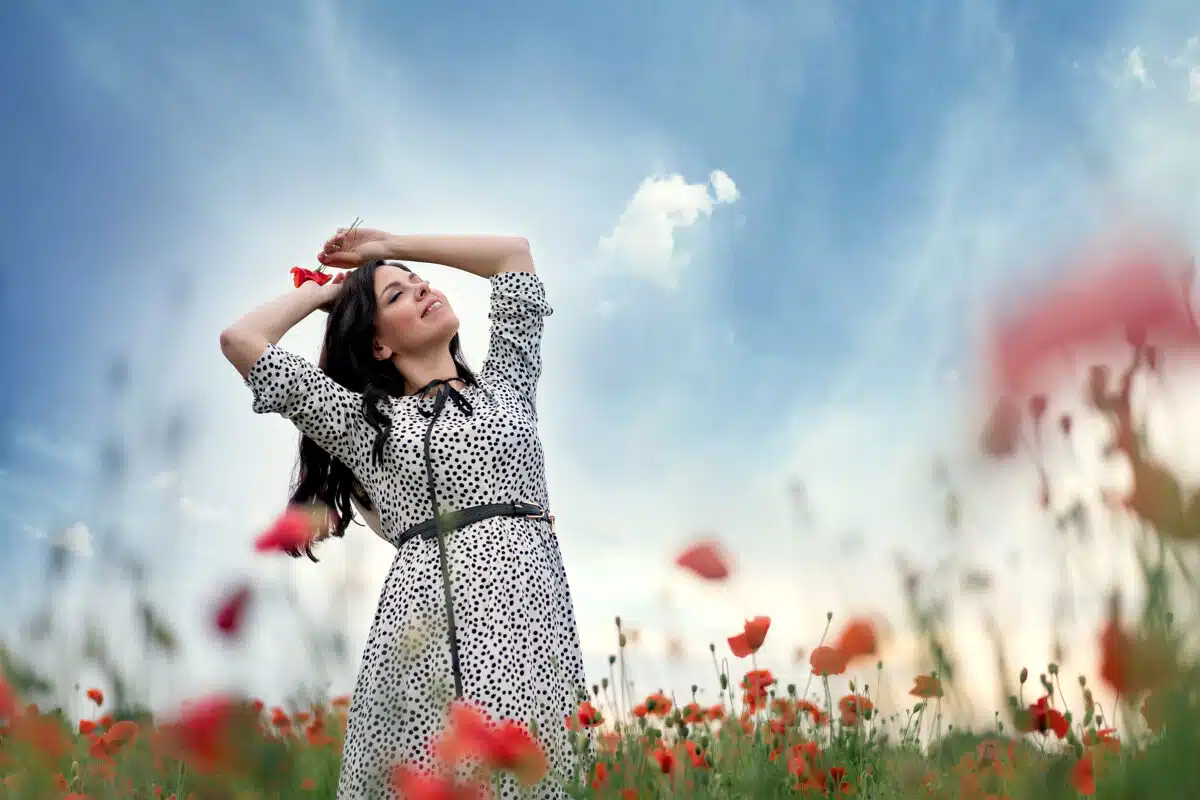
From “Mac Swiggen” by Philip Freneau
O waft me far, ye muses of the west
Give me your green bowers and soft seats of rest—
Thrice happy in those dear retreats to find
A safe retirement from all human kind.
Though dire misfortunes every step attend,
The muse, still social, still remains a friend
In solitude her converse gives delight,
With gay poetic dreams she cheers the night,
She aids me, shields me, bears me on her wings,
In spite of growling whelps, to high, exalted things,
Beyond the miscreants that my peace molest,
Miscreants, with dullness and with rage opprest.
“Companionship Indispensable To Age” by Joseph William Jenks
‘T is past now flows my blood with laggard pace,
And sensual pleasures to the soul give place.
The sweetest spot that fond retirement knows,
If left to me alone, a desert grows.
Whatever joys the sylvan scenes prepare,
Some friend be near that may that pleasure share.
“Suburban Residences Satirized” by Joseph William Jenks
Suburban villas, highway-side retreats,
That dread th’ encroachment of our growing streets,
Tight boxes neatly sashed, and in a blaze
With all a July sun’s collected rays,
Delight the citizen, who, gasping there,
Breathes clouds of dust, and calls it country air.
O sweet retirement, who would balk the thought,
That could afford retirement, or could not?
‘Tis such an easy walk, so smooth and straight,
The second milestone fronts the garden gate;
A step if fair, and if a shower approach,
You find safe shelter in the next stage-coach.
There, prisoned in a parlor snug and small,
Like bottled wasps upon a southern wall ,
The man of business and his friends, compressed,
Forget their labors, and yet find no rest;
But still ‘t is rural—trees are to be seen
From every window, and the fields are green;
Ducks paddle in the pond before the door,
And what could a remoter scene show more?

“Conscience Calls to the Quiet Country Life” by Joseph William Jenks
Thus Conscience pleads her cause within the breast,
Though long rebelled against, not yet suppressed,
And calls a creature formed for God alone,
For heaven’s high purposes, and not his own;
Calls him away from selfish ends and aims,
From what debilitates and what inflames,
From cities humming with a restless crowd,
Sordid as active, ignorant as loud,
Whose highest praise is that they live in vain,
The dupes of pleasure, or the slaves of gain,
Where works of man are clustered close around,
And works of God are hardly to be found,—
To regions where, in spite of sin and woe,
Traces of Eden are still seen below,
Where mountain, river, forest, field, and grove,
Remind him of his Maker’s power and love.
